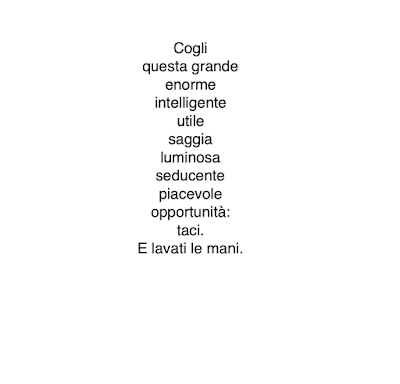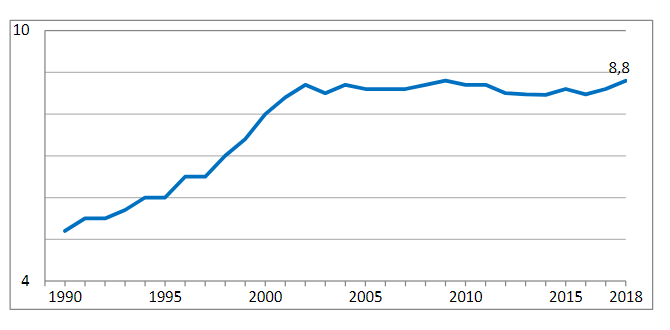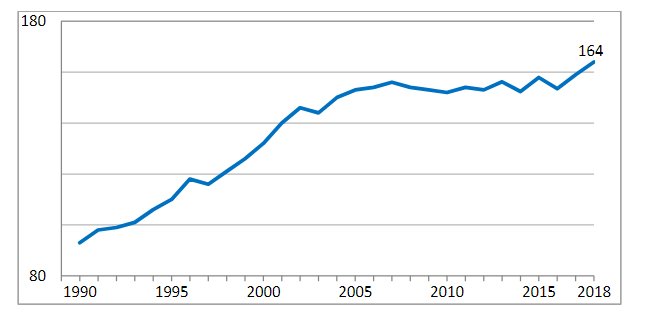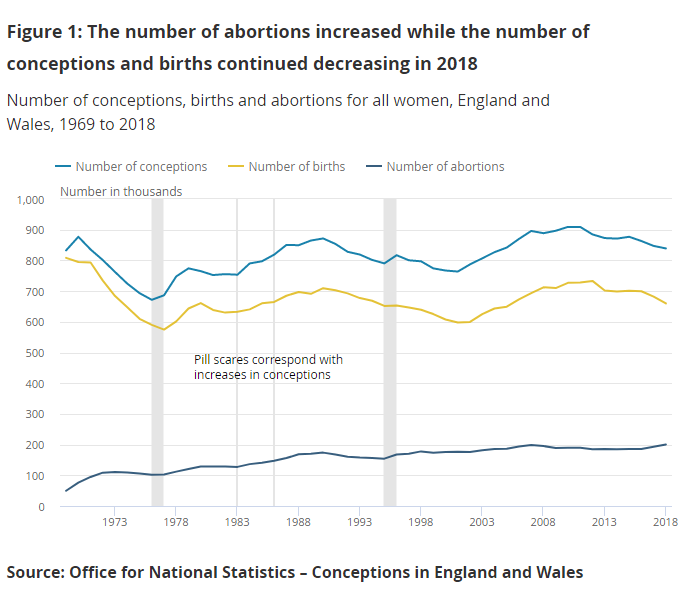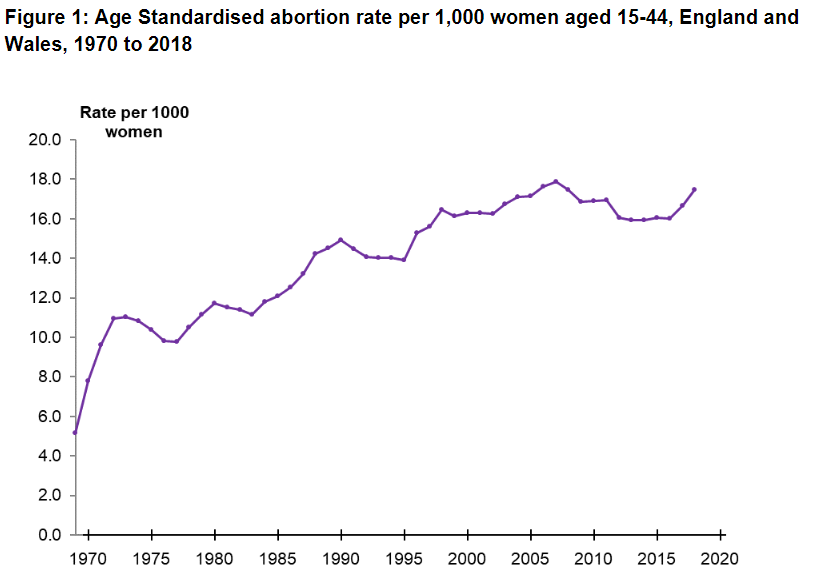
martedì, marzo 17, 2020
Two major setbacks for freedom of conscience and assembly

lunedì, marzo 16, 2020
Mr Johnson
martedì, marzo 10, 2020
An astonishing UN attack on religious freedom
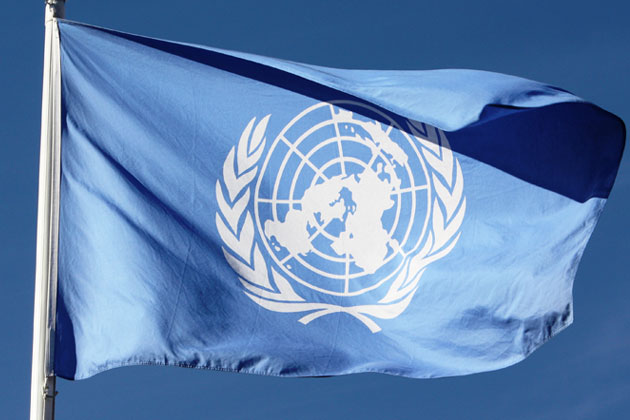
A new U. N. report on freedom of religion is actually a headlong attack on that same freedom in the name of “reproductive and sexual rights”. It makes no mention of the persecution of religious believers, it attacks the conscience rights of pro-life medical workers, it references female genital multilation almost in the same breath as conscientious objection to abortion, and it also decries religious objections to gender ideology which denies the biological basis of gender.
The report gives us a disturbing insight into the way many on the secular side view religious freedom and wish to reduce that freedom to freedom of worship.
Ahmed Shaheed, the United Nation Special Rapporteur on Freedom of Religion and Belief, presented his report to the Human Rights Council in Geneva last week.
Paradoxically, Poland, which after decades of religious persecution by the Communist regime is now a free country with regard to religion, is singled out as a bad example in Europe because some groups campaigned against gender ideology. The report also objects to religious believers defending marriage as the union of a man and a woman.
But if religious believers are forbidden from trying to bring their beliefs to bear on how they carry out they jobs, or from attempting to public policy, except in carefully and ever more circumscribed way, then it is a very limited freedom. Democracy is based specifically on the free confrontation of different opinions, some of which are religiously grounded. The United Nations should promote this freedom, rather than trying to limit it. Indeed, other U. N. documents, not least the Universal Declaration on Human Rights, do this, but other U. N. agencies are now try to curtail religious freedom.
With reference to Asia, the report singles out the Philippines, because “the criminalization of abortion and lack of access to contraception, is often justified by reference to religious postulates.”
Instead, there is absolutely no reference to dictatorships such as China, Vietnam or North Korea, which are the worst countries for religious rights.
It should be noted that both Poland and the Philippines are the most Catholic countries in Europe and Asia respectively.
The report also explicitly attacks conscientious objection, suggesting that it should be limited to “individual medical providers” rather than institutions, although it also has a problem if too many doctors object to abortion and won’t perform them.
It seems to envisage that that a hospital with a pro-life religious ethos should be forced by the State to perform abortions. Other international bodies, the Council of Europe for instance, have defended institutional conscientious objection so it is astonishing that, once again, the U. N. Special Rapporteur on Freedom of Religion and Belief is not promoting but rather limiting freedom of belief.
Archbishop Ivan Jurkovic, the Holy See’s permanent representative observer to the U. N. in Geneva, has strongly criticised the report. “Particularly unacceptable and offensive are the numerous references that recommend that freedom of religion or belief and conscientious objection must be surrendered for the promotion of other so-called ‘human rights,’ which certainly do not enjoy consensus, thus being a sort of ‘ideological colonization’ on the part of some states and international institutions.”
“Ideological colonization” is an expression by Pope Francis to refer to some Western countries who, through international bodies such as the U. N., are imposing their worldview on less developed countries, often by making the adoption of certain policies based on gender ideology a condition of humanitarian or development aid.
Archbishop Jurkovic added that “it is rather unfortunate, yet increasingly less surprising given its frequency, that a U. N. Report, which should defend the fundamental and universal human right of freedom of religion or belief as well as the right to conscientious objection, is now attacking the very reality it is called to defend.”
domenica, marzo 08, 2020
sabato, marzo 07, 2020
LA STRETTA DE MANO
venerdì, marzo 06, 2020
La Scuola Chesterton contro l’asilo obbligatorio
giovedì, marzo 05, 2020
Pregare con fiducia e perseveranza
| Pregate con molta fiducia, che ha per fondamento la bontà e liberalità infinite di Dio e le promesse di Gesù Cristo. (...) |
| Il più grande desiderio che ha il Padre eterno riguardo a noi è comunicarci le acque salvifiche della sua grazia e della sua misericordia, ed esclama: "Venite a bere alla mia acqua con la preghiera"; e quando non lo si prega, lamenta che lo si abbandoni: "Hanno abbandonato me, sorgente di acqua viva" (Ger 2,13). E' far piacere a Gesù Cristo chiedergli grazie, e se non si fa, se ne lamenta affettuosamente: "Finora non avete chiesto nulla nel mio nome. Chiedete e vi sarà dato; cercate e troverete; bussate e vi sarà aperto" (cfr Gv 16,24; Mt 7,7; Lc 11,9). E ancora, per darvi più fiducia a pregarlo, ha impegnato la sua parola, dicendoci che l'eterno Padre ci darà tutto quanto gli domanderemo nel suo nome. |
| Ma alla fiducia aggiungiamo la perseveranza nella preghiera. Solo chi persevererà nel chiedere, nel cercare e nel bussare riceverà, troverà, entrerà. |
|
San Luigi Maria Grignion de Montfort (1673-1716)
|
mercoledì, marzo 04, 2020
martedì, marzo 03, 2020
The parties with the most secularist voters

Exit poll data from the recent General Election allow us to see which party has the most religious supporters and which one the least. The short answer is that Aontú has the most religious supporters – measured by regular church attendance – while the Greens and Social Democrats are neck and neck in having the least religious voters.
Over 90pc of Aontú supporter attend church at least once a week. This is quite significant if we consider that in the overall population an average of 31pc of voters attend daily or weekly according to the exit poll.
There is little difference in regular church attendance between men (29pc) and women (33pc) although age is an important factor, as only 7pc of young people aged 18-24 attend regularly compared to 19pc of those aged 35-49 and 58pc of the over 65s.
The party with the second highest number of regular church-goers is Fianna Fáil with 46pc, which is still considerably higher than the national average. Fine Gael comes in on 35pc and Sinn Fein on 17pc.
The rest of the parties are as follows: Social Democrats (10pc), Green (12pc), People Before Profit (17 pc), Labour (23pc), Independents (38pc).
Of course, not being a regular church-goer doesn’t mean a person is aggressively secularist, meaning they wish to see the influence of religious values in society reduced to the minimum. As we have seen, younger people are far less likely to attend church than older people, but this doesn’t mean they are ideologically secular as such.
Middle-class people are also more likely to attend church than working class people and the same goes for rural versus urban dwellers. This helps to explain why the likes of Sinn Fein has few enough regular church-goers among their supporters and Fianna Fail lots more. Fianna Fail voters are older and more rural.
It is a bit surprising that People Before Profit have a higher number of regular church-goers among their supporters than the Greens or the Social Democrats given how aggressively and militantly secular their TDs are. Does this indicate that Green and Social Democrat voters are the most ideologically secular, which is secularist, of the lot? Probably.

